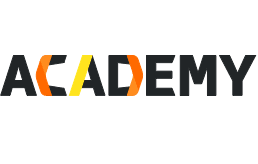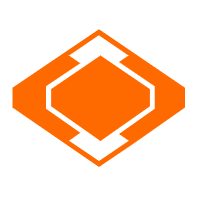By Jeremy Pedersen
Welcome back for the eighth installment in our weekly Q&A blog series! We're taking a look back into the archives this week, and addressing some questions from previous Alibaba Cloud training sessions.
No. If - for example - you start an ECS instance running Ubuntu 18, that instance will always run Ubuntu 18, unless you manually upgrade it yourself.
Yes, if you use one of our Windows disk images, we take care of licensing for you: Windows will be activated for you from the minute the ECS instance starts running.
Yes, within reason. If your operating system can run on a modern Intel processor, it will run on a Bare Metal instance. This includes operating systems that are End-of-Life, like Windows Server 2003. Of course, you'll need to provide your own custom disk image (and license) if you want to do this, since Alibaba Cloud does not offer pre-built disk images for end-of-life or custom operating systems.
You can learn how to import custom images here.
You can back up files to OSS using a script or one of our existing tools like the Alibaba Cloud CLI. You can also use our HBR (Hybrid Backup Recovery) tool, which can handle a variety of different backup scenarios both on and off the cloud.
First, let's explain what "LRS" and "ZRS" are. By default, the OSS service keeps three copies of any data you save into an OSS bucket.
Normally, these 3 copies live in "Locally Redundant Storage" (LRS). That means that all 3 copies of your data live in the same Alibaba Cloud Availability Zone (AZ). They are on separate physical hosts on separate network switches, but because they are all located in the same Zone, loss of power or networking to the Zone would mean you cannot access your data (at least temporarily).
For customers with extremely high availability requirements, you can store these redundant copies of your data across more than one zone, which means your data will still be available even if one Zone fails.
So, how much more does this cost? To get a real answer, we have to know:
1 - How much storage space is being used?
2 - In which Alibaba Cloud region?
and
3 - What storage class are we using? (Standard, Infrequent Access, Archive, Cold Archive)?
Let's assume that we are using Standard OSS storage, in Singapore. In this case:
For small users, this doesn't add up to much. If you were storing 1000 GB, LRS would cost you 20 USD per month, while ZRS would cost 22 USD per month.
In general, if you have high availability requirements, turning on ZRS is probably a good idea!
One way would be to have each of your backend ECS instances serve a slightly different version of your web application, with some obvious marker to indicate which server is sending the response. This way, you can check your load balancer from a web browser, just by repeatedly visiting your site and seeing if the load balancer routes you to a different server each time.
Of course, that's not going to be very convenient in production! If you want to see whether or not load balancing is working correctly in production, you can use Cloud Monitor.
Take a look at this page to see how you can monitor your Load Balancer and ensure it is accepting incoming connections, then look here to see how you can monitor network traffic to your backend ECS instances, which should give you an idea whether traffic is being evenly distributed or not.
Not hard at all! You can upgrade or downgrade ECS instances (we call this "vertical scaling") directly from the web console. Doing so will reboot the instance, but after a few seconds you should have more memory or CPU cores available.
You can even resize disks without a reboot, if you are using a filesystem that supports it (modern versions of Windows Server and Ubuntu / CentOS all support this).
You can learn more about upgrading and downgrading instances here.
Absolutely! You can take a look at our Terraform Provider to see what's supported. We also have a list of Terraform Modules which you can use to make Terraform based deployments easier.
GitHub also contains a lot of example code both from Alibaba Cloud and from third parties.
If you're looking for a large, comprehensive example codebase that takes advantage of advanced Terraform features (modules, local variables, functions, etc...), you can take a look at this multi account IT governance example code, from the Alibaba Cloud Academy team.
Like other major public clouds, Alibaba Cloud offers several different storage services.
In general, we divide our storage services into "block"-type and "object"-type storage. So what's the difference?
Essentially, "block" storage means disk storage: regardless of how it is physically implemented, what we present to the user is something that looks and acts like a hard drive. With block storage, you can install a traditional filesystem, and use the block device just like any hard drive.
By contrast, "object"-type storage does not present a hard-drive style interface. Instead, we give the user an API that allows users to manipulate "objects", which typically means "files". With object storage, users call an API to create, modify, and delete objects and object properties (tags, metadata). Because this gives us complete freedom over how we implement the underlying storage system (and because it allows us to share the system amongst multiple users), object storage is significantly cheaper than block storage: sometimes up to 10x cheaper! Of course, the downside is that you cannot install your own filesystem, so object storage cannot be used to run an operating system or a database system. It's great for raw file storage, though!
It's true that RIs are pretty great! However, the minimum commitments for RIs are long (1 to 3 years) whereas Subscriptions can be shorter (as short as 1 month).
Another advantage of a Subscription instance is that it is always reserved for you. An RI needs to be applied after-the-fact to a Pay-As-You-Go (PAYG) instance. For some types of RI, if there isn't any PAYG capacity available in your chosen region, your instance can't be started and you can't use your RI. Although unlikely, this is something to consider. Subscription instances are reserved as soon as you pay for them, so they are always available to you for the length of your subscription.
Great! Reach out to me at jierui.pjr@alibabacloud.com and I'll do my best to answer in a future Friday Q&A blog.
You can also follow the Alibaba Cloud Academy LinkedIn Page. We'll re-post these blogs there each Friday.
JDP - March 26, 2021
JDP - May 7, 2021
JDP - April 9, 2021
JDP - April 30, 2021
JDP - June 4, 2021
JDP - July 9, 2021
 Alibaba Cloud Academy
Alibaba Cloud Academy
Alibaba Cloud provides beginners and programmers with online course about cloud computing and big data certification including machine learning, Devops, big data analysis and networking.
Learn More Alibaba Cloud Drive Solution
Alibaba Cloud Drive Solution
Build your cloud drive to store, share, and manage photos and files online for your enterprise customers
Learn More Storage Capacity Unit
Storage Capacity Unit
Plan and optimize your storage budget with flexible storage services
Learn More Hybrid Cloud Storage
Hybrid Cloud Storage
A cost-effective, efficient and easy-to-manage hybrid cloud storage solution.
Learn MoreMore Posts by JDP